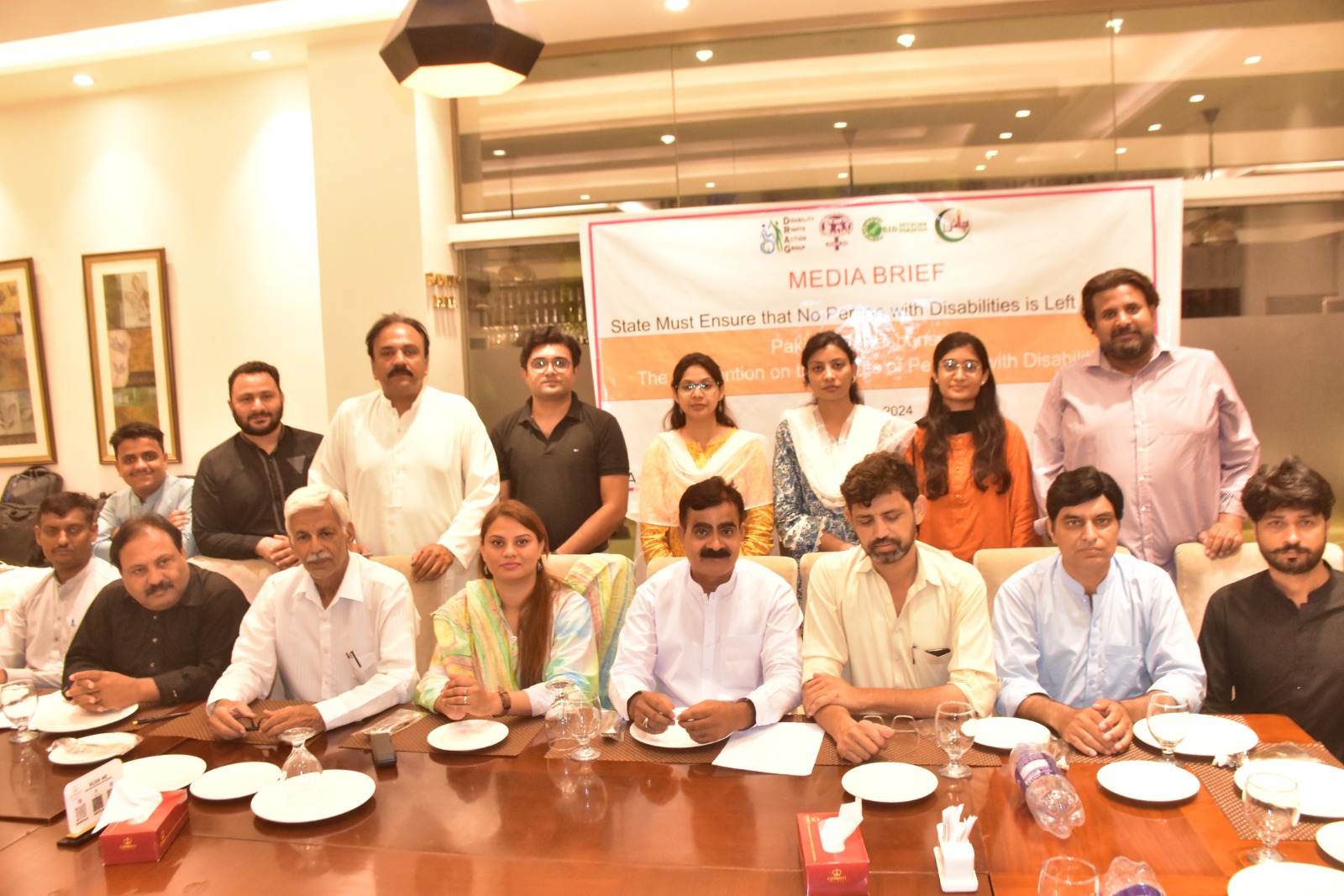News Desk
ISLAMABAD:
Disability rights activists have urged the Pakistani government to enhance compliance with the United Nations Convention on the Rights of Persons with Disabilities (UNCRPD) and to ensure the development of accessible social infrastructure to increase the visibility and social inclusion of persons with disabilities.
At a media briefing titled “Pakistan’s Response to the Convention on the Rights of Persons with Disabilities (CRPD),” organized by the Association of Women for Awareness and Motivation (AWAM) in collaboration with the Disability Rights Action Group (DRAG), the Community-Based Inclusive Development (CBID) Network, and the Chanan Network, activists highlighted several key issues and made specific demands to the government.
The briefing, held to mark the 13th anniversary of Pakistan’s ratification of the UNCRPD, saw prominent figures such as Shazia George, Sonia Patras, Al-Haaj Latif Gill, Mian Iftikhar Ahmed, and Muhammad Younis expressing concerns over the country’s disability rights protection mechanisms.
Shazia George, Executive Director of AWAM and former member of the Punjab Commission on the Status of Women (PCSW), emphasized the marginalization of women with disabilities, stating, “Women with disabilities are the most marginalized group within the disability community and require special attention from authorities and political decision-makers.”
Sonia Patras, Deputy Director of AWAM, acknowledged the Punjab government’s approval of a new law for persons with disabilities in 2022, which incorporated UNCRPD committee recommendations. However, she criticized the lack of resource allocation and implementation measures.
Al-Haaj Ch. Latif Gill pointed out the failure to establish a disability-friendly environment and accessible social infrastructure, saying, “Successive governments have introduced numerous services and reserved facilities for persons with disabilities, but these are conditional on obtaining a disability certificate – a cumbersome process that many in the PWD community bypass.”
Mian Iftikhar Ahmed, journalist and general secretary of DRAG, noted the5 insufficiency of existing services and facilities due to the lack of accurate data on persons with disabilities. He called for compliance with Article 31 of the UNCRPD to collect data using scientific methods and with Article 34 to establish local committees to increase the visibility and social inclusion of persons with disabilities.
Muhammad Younis, representing the persons with disabilities community, concluded by emphasizing the need to treat persons with disabilities as productive human resources rather than excluding them from social activities and relegating them to begging.
The activists collectively urged the government to ensure that no person with disabilities is left behind in policy-making and development plans, to create an accessible and disability-friendly environment, and to eliminate all barriers preventing the full inclusion of persons with disabilities in mainstream development. Additionally, they called for measures to protect women with disabilities and eliminate gender-based discrimination.


